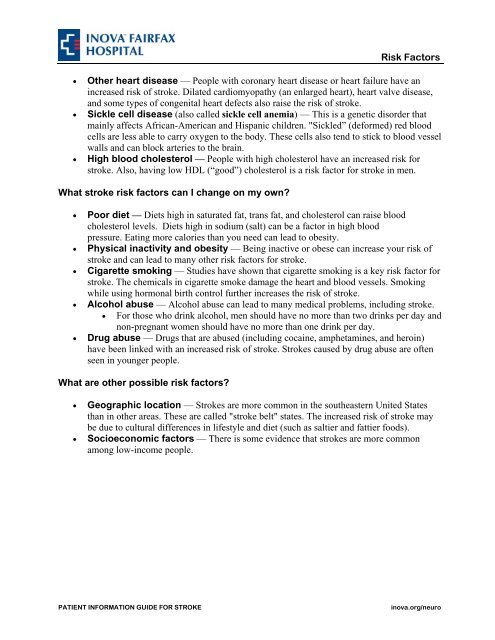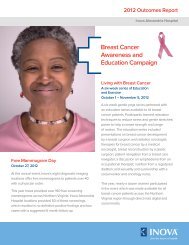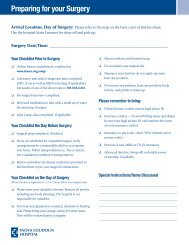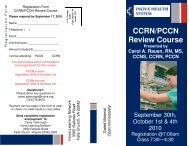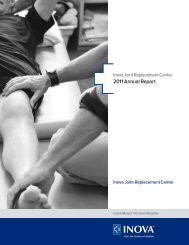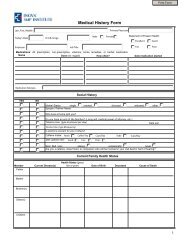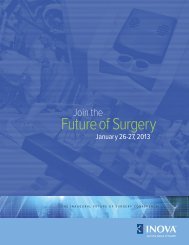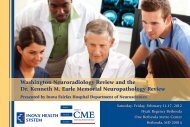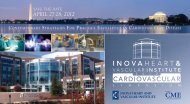Fairfax Hospital Neuroscience Services - Inova Health System
Fairfax Hospital Neuroscience Services - Inova Health System
Fairfax Hospital Neuroscience Services - Inova Health System
Create successful ePaper yourself
Turn your PDF publications into a flip-book with our unique Google optimized e-Paper software.
Risk Factors<br />
<br />
<br />
<br />
Other heart disease — People with coronary heart disease or heart failure have an<br />
increased risk of stroke. Dilated cardiomyopathy (an enlarged heart), heart valve disease,<br />
and some types of congenital heart defects also raise the risk of stroke.<br />
Sickle cell disease (also called sickle cell anemia) — This is a genetic disorder that<br />
mainly affects African-American and Hispanic children. "Sickled” (deformed) red blood<br />
cells are less able to carry oxygen to the body. These cells also tend to stick to blood vessel<br />
walls and can block arteries to the brain.<br />
High blood cholesterol — People with high cholesterol have an increased risk for<br />
stroke. Also, having low HDL (“good”) cholesterol is a risk factor for stroke in men.<br />
What stroke risk factors can I change on my own?<br />
<br />
<br />
<br />
<br />
<br />
Poor diet — Diets high in saturated fat, trans fat, and cholesterol can raise blood<br />
cholesterol levels. Diets high in sodium (salt) can be a factor in high blood<br />
pressure. Eating more calories than you need can lead to obesity.<br />
Physical inactivity and obesity — Being inactive or obese can increase your risk of<br />
stroke and can lead to many other risk factors for stroke.<br />
Cigarette smoking — Studies have shown that cigarette smoking is a key risk factor for<br />
stroke. The chemicals in cigarette smoke damage the heart and blood vessels. Smoking<br />
while using hormonal birth control further increases the risk of stroke.<br />
Alcohol abuse — Alcohol abuse can lead to many medical problems, including stroke.<br />
For those who drink alcohol, men should have no more than two drinks per day and<br />
non-pregnant women should have no more than one drink per day.<br />
Drug abuse — Drugs that are abused (including cocaine, amphetamines, and heroin)<br />
have been linked with an increased risk of stroke. Strokes caused by drug abuse are often<br />
seen in younger people.<br />
What are other possible risk factors?<br />
<br />
<br />
Geographic location — Strokes are more common in the southeastern United States<br />
than in other areas. These are called "stroke belt" states. The increased risk of stroke may<br />
be due to cultural differences in lifestyle and diet (such as saltier and fattier foods).<br />
Socioeconomic factors — There is some evidence that strokes are more common<br />
among low-income people.<br />
PATIENT INFORMATION GUIDE FOR STROKE<br />
inova.org/neuro


